This is a reminder to myself everytime I write Nsubstitute Excel Unit Tests. I have battled with this error too many times.
You will get the error: Cannot perform runtime binding on a null reference
When you have referened the .Net Excel Object Library, you MUST
reference the COM Microsoft Excel 14.0 Object Library. Once the COM
interop Excel DLL is referenced, click F4 to see the DLLs Properties,
remember to set the COM Interop NOT to Embed Interop Types.
.Excel Here is a working Project file:
<ItemGroup>
<Reference Include="Microsoft.Office.Interop.Excel.Extensions">
<HintPath>..\..\Refs\Microsoft.Office.Interop.Excel.Extensions.dll</HintPath>
</Reference>
<Reference Include="Microsoft.VisualStudio.QualityTools.UnitTestFramework, Version=10.0.0.0, Culture=neutral, PublicKeyToken=b03f5f7f11d50a3a, processorArchitecture=MSIL" />
<Reference Include="NSubstitute">
<HintPath>..\..\Refs\NSubstitute.dll</HintPath>
</Reference>
<Reference Include="System" />
<Reference Include="System.Core">
<RequiredTargetFramework>3.5</RequiredTargetFramework>
</Reference>
<Reference Include="System.Data" />
<Reference Include="System.Data.DataSetExtensions" />
<Reference Include="System.Runtime.Serialization" />
<Reference Include="System.Xml" />
<Reference Include="System.Xml.Linq" />
<Reference Include="UIAutomationProvider" />
<Reference Include="VSTOContrib.Core, Version=0.9.0.52, Culture=neutral, processorArchitecture=MSIL" />
<Reference Include="WindowsBase" />
<Reference Include="WindowsFormsIntegration" />
</ItemGroup>
<ItemGroup>
<CodeAnalysisDependentAssemblyPaths Condition=" '$(VS100COMNTOOLS)' != '' " Include="$(VS100COMNTOOLS)..\IDE\PrivateAssemblies">
<Visible>False</Visible>
</CodeAnalysisDependentAssemblyPaths>
</ItemGroup>
<ItemGroup>
<Compile Include="MockFactory.cs" />
<Compile Include="Properties\AssemblyInfo.cs" />
<Compile Include="UnitTests.cs" />
</ItemGroup>
<ItemGroup>
<COMReference Include="Microsoft.Office.Core">
<Guid>{2DF8D04C-5BFA-101B-BDE5-00AA0044DE52}</Guid>
<VersionMajor>2</VersionMajor>
<VersionMinor>4</VersionMinor>
<Lcid>0</Lcid>
<WrapperTool>primary</WrapperTool>
<Isolated>False</Isolated>
</COMReference>
<COMReference Include="Microsoft.Office.Interop.Excel">
<Guid>{00020813-0000-0000-C000-000000000046}</Guid>
<VersionMajor>1</VersionMajor>
<VersionMinor>6</VersionMinor>
<Lcid>0</Lcid>
<WrapperTool>primary</WrapperTool>
<Isolated>False</Isolated>
</COMReference>
</ItemGroup>
The offender is this .Net Interop reference (needs to be the COM reference):
<Reference Include="Microsoft.Office.Interop.Excel, Version=14.0.0.0, Culture=neutral, PublicKeyToken=71e9bce111e9429c, processorArchitecture=MSIL">
<EmbedInteropTypes>True</EmbedInteropTypes>
</Reference>



